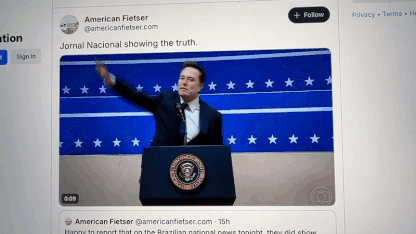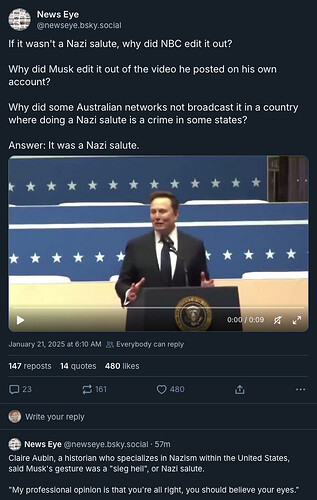She has personally moved to Bluesky, but most of her customers don’t know what that is, and, honestly, in our neck of the woods, many are ok-or-better with fascism anyway. I’m not sure there is anything we can do about this, it’s already done. Just scary as hell.
That’s really well explained. And yeah, I’d be glad to delete meself from Fuckbook, but in so many cases, it’s the only way I’m in touch with someone.
I hear you.
None of this is going to be easy.
If it were easy, everyone would be deserting the enshittified platforms.
Where applicable, I have started just using my phone more and making actual voice calls to catch up with people. At least I can talk and drive at the same time. Obviously not possible to talk to a Fb group.
My bigger gripe is when businesses use their Fb page as their sole digital presence. No web site (this has been especially bad for some boot-strappy restaurants I knew in Austin) and sometimes no phone number. Like, when I would go to googlemaps the pin is visible on the map, but there’s no way to contact the business in question except for Fb Messenger.
Probably as sign of The End Times.
Or a marketing opportunity, for businesses that may actually want to level up and get their own actual web sites done, finally.
ETA: typo
In this case, I don’t think pocket sand is going to be all that effective.
As TV Globo is in another hemisphere, they decided to make a comparison with images from the 1930s.
He’s just enthusiastic /s
Is there a way to get a gif of that video?
I was trying to download the video from Bluesky but I couldn’t.
You can use this site to download Bluesky videos:
You can even reply to the post containing the video with @down.blue and a link will be generated for you.
I tried, but the proccess stalled. I think a lot of people are tryng to download it.
I video’d my pad. Converted to gif & reduced it to under 4mg. What is the size limit here anyway?

Cropped at ezgif.

We’re getting closer!
I like how the gif above shows an even closer resemblance. Musk’s arm going out sideways instead of forward ( as in my memories of the standard Nazi salute) made it seem like there’s some plausible deniability. But no, as the gif shows, that’s exactly how Hitler did it. What more proof is needed that Musk is a straight-up fucking Nazi? (I know I know, fuck me and the facts I rode in on.)

Not exactly that, but of some use.
And apparently Google donated to project 2025/Turnip (I saw it yesterday, but damned if I can remember where), and good luck trying to divest your devices from Google. It’s so enmeshed in, well, everything.





